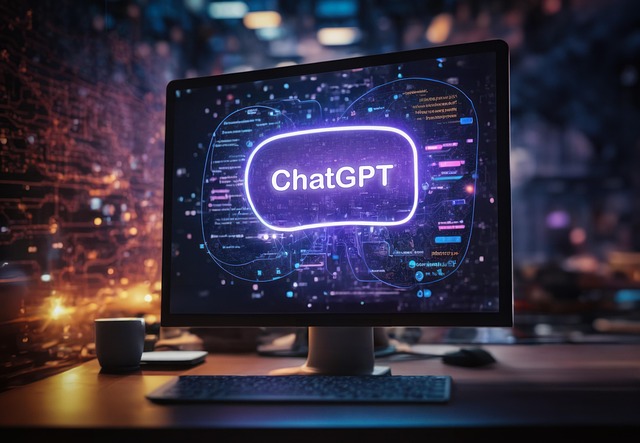
Boost your visibility in AI tools with our 2025 guide to SEO for ChatGPT and AI Search. Learn how to optimize content for AI-driven search engines.
The future of search is shifting. With the rise of AI-powered tools like ChatGPT, Google SGE, and Perplexity AI, users are no longer just searching—they’re asking. As digital marketers, it’s time to rethink how we optimize content for this new kind of interaction.
What Is AI-Based Search?
AI-based search engines don’t show the traditional list of links. Instead, they use artificial intelligence to understand the question, search across sources, and generate a summarized answer—often without needing the user to click on any website.
Popular AI search tools include:
- ChatGPT (with browsing) – Answers questions using real-time internet data
- Google SGE, or Search Generative Experience, is an AI-powered search engine.
- Perplexity AI – Gives cited answers with conversational search
- You.com, Andi – Personal AI search assistants
Why SEO Must Change in 2025?
Old SEO = ranking web pages.
New SEO = becoming the source of AI-generated answers.
AI tools pull information from high-authority, well-structured, and context-rich content. If your content doesn’t meet those standards, it won’t be surfaced—even if it ranks on Google.
How to Optimize for SEO for ChatGPT and AI Search?
1. Write in Question-Answer Format
AI tools love clear questions with direct, helpful answers. Use headers like:
- “What is [Topic]?”
- “How does [Process] work?”
Include concise answers early in the paragraph.
2. Use Structured Data & Schema Markup
Help AI understand your content better. Add schema for:
- Articles
- FAQs
- How-to Guides
- Products
This makes it easier for AI models to extract information.
3. Focus on Topical Authority
AI doesn’t just look at one blog—it looks at your site as a whole. Build clusters of content around a theme to show you’re an expert in the field.
Example: If you’re writing about “Digital Marketing,” also cover SEO, PPC, content, and social media marketing.
4. Improve E-E-A-T Signals (Experience, Expertise, Authority, Trust)
AI tools prefer content backed by real people and credible sources. Include:
- Author bios with credentials
- Sources and citations
- Real examples and case studies
5. Optimize for Featured Snippets
Since AI pulls from featured content, write concise summaries (40–60 words) near the top of your articles. When appropriate, use numbered lists or bullet points.
6. Keep Content Updated
AI prefers current information. Regularly refresh your posts with new data, tools, and best practices to stay relevant.
Bonus: Tools to Test AI SEO Visibility
Try these tools to see how your content performs in AI searches:
- Perplexity.ai – Search your topic and see who gets cited
- ChatGPT with browsing – Ask a question and see which sources it uses
- AlsoAsked & AnswerThePublic – Find trending questions to answer
- SurferSEO / Frase – Optimize content for semantic relevance
Final Thoughts
AI search isn’t the future—it’s already here. By adjusting your content SEO for ChatGPT and AI Search, you’re not just improving SEO; you’re ensuring your brand remains visible as user behavior continues to evolve.
Start optimizing now. The AI revolution won’t wait.
Frequently Asked Questions
What is AI Search, and how is it different from traditional search engines?
AI Search refers to search technologies powered by artificial intelligence, like ChatGPT, Google SGE, and Perplexity AI. Unlike traditional search engines that rely heavily on keyword matching, AI Search understands user intent, context, and conversational queries to deliver more accurate and personalized answers.
Why is SEO for ChatGPT and AI Search important in 2025?
As AI-driven platforms become key sources of information, businesses must optimize for visibility within these tools. SEO for AI Search ensures your content is structured, trustworthy, and helpful enough to be referenced or surfaced by AI models in answers and recommendations.
How can I optimize my content for ChatGPT and other AI-powered search platforms?
Focus on creating clear, factual, and well-structured content with authoritative sources. Use schema markup, FAQs, concise summaries, and E-E-A-T (Experience, Expertise, Authoritativeness, and Trustworthiness) principles to improve your chances of being included in AI-generated responses.
Does traditional SEO still matter with the rise of AI search?
Yes. While AI search changes how content is surfaced, foundational SEO—like quality backlinks, mobile optimization, fast page speed, and keyword relevance—still plays a major role in visibility on both traditional and AI-powered platforms.
How do I track my SEO performance on AI platforms like ChatGPT or Google SGE?
Tracking SEO on AI platforms is still evolving. Use tools that monitor featured snippets, voice search performance, and zero-click search trends. Also, observe traffic shifts from AI-integrated tools and track branded search queries to measure influence.
